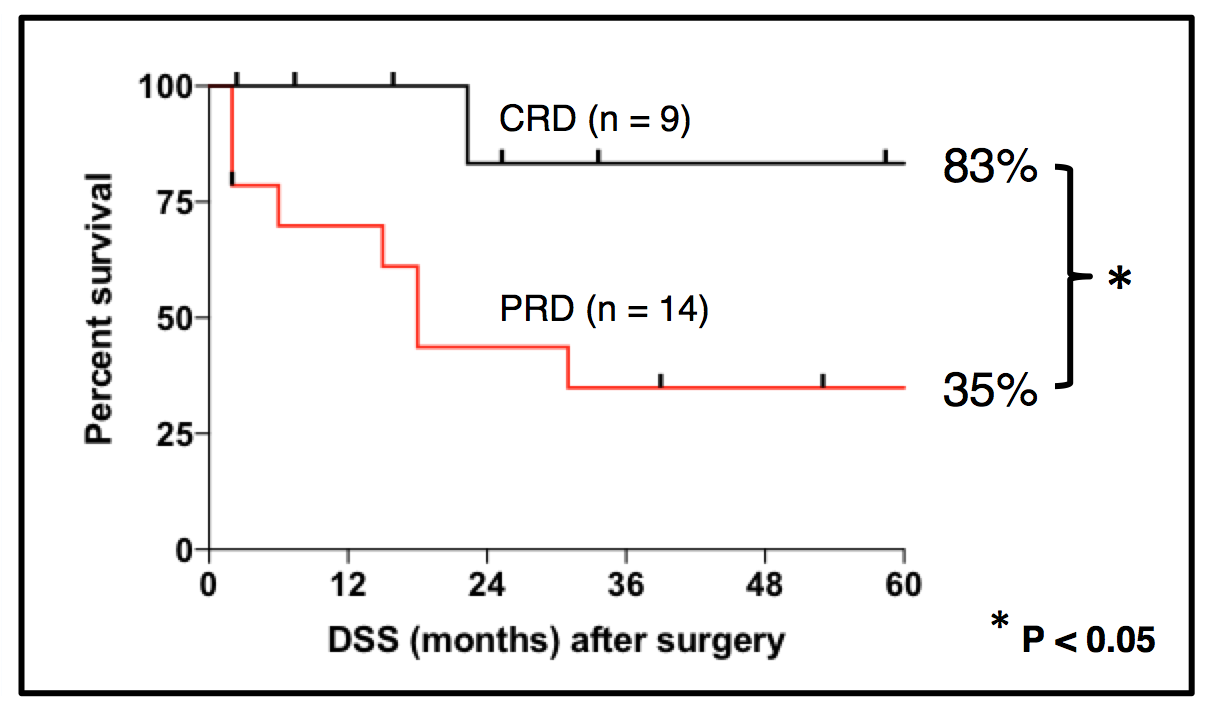Bowel resection for melanoma progressing after immunotherapy with checkpoint inhibitors.
*Nicholas D Klemen1, *Sara Abou Azar1, *Melinda Wang1, *Paul L Feingold1, *Dale Han2, *Kurt Roberts1, *Vikram Reddy1, *Kelly Olino1, Ronald S Salem1, *Sarah Weiss1, *Harriet Kluger1, *Mario Sznol1, Charles Cha1
1Yale University School of Medicine, New Haven, CT;2Oregon Health and Science University, Portland, OR
Objective: Determine survival after bowel resection (BR) in patients with melanoma treated with checkpoint inhibitors (CPI).
Design: Retrospective review
Setting: Single-institution
Patients: stage IV melanoma patients treated with CPI and requiring BR for progressive disease
Interventions: laparotomy or laparoscopy
Main Outcome Measures: Indication for BR, disease-specific survival (DSS).
Results: 23 patients underwent BR after CPI for progressive melanoma; 3 were asymptomatic, 12 symptomatic and 8 emergent. After resection, 9 patients had controlled (regressing, stable or absent) residual disease (CRD) while 14 had progressive residual disease (PRD). The median time from CPI to BR was 12 months for all patients, but was 36 months vs. 8 months for CRD and PRD patients respectively (P = 0.012). At a median follow-up of 48 months after BR, median DSS was not met and 18 months for CRD and PRD patients respectively (P = 0.037), and five-year DSS was 83% and 35%. 7 of 8 emergency BR were in PRD patients, resulting in 5-year DSS of 47%.
Conclusions: BR in patients with CRD is associated with excellent DSS. BR in the context of PRD, performed emergently in 7 of 14 cases, still was associated with 5-year DSS of 35%. These data suggest patients who are medically fit for surgery should be considered for BR regardless of residual disease status because long survival may still be possible. 
Figure 1: DSS after surgery. Patients were stratified according to residual disease status after BR.
Back to 2019 Abstracts




